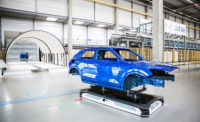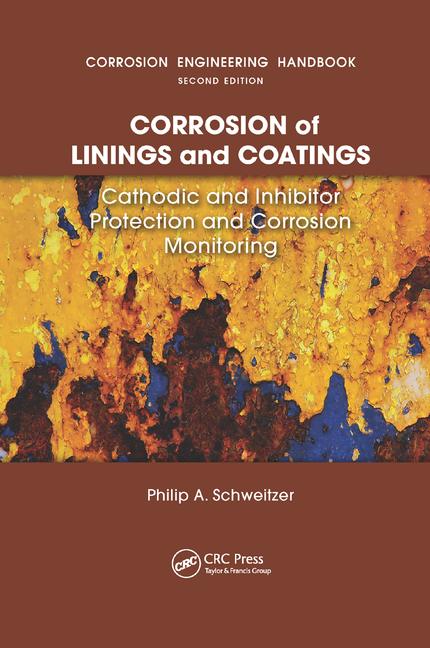Staying Ultra Clean – the Importance of Paint Shop Cleaning


A robot dips and tilts an entire vehicle structure into an industrial-sized tub of paint, where it is submerged for minutes. In close distance stands a figure dressed head-to-toe in a lint-free suit, manually inspecting frames for dirt and contamination. Grids situated along the floor remove excess paint from the area, while large air conditioning systems work tirelessly to ensure the entire room remains at a precise temperature, pressure and humidity. This is the modern paint shop, and keeping it ultra-clean is a highly complex, 24-hour operation.
One business with considerable experience cleaning paint shops is Leadec. With highly skilled personnel situated in 90 paint shops around the world working around the clock, the company is one of the few industrial services specialists that can meet this challenge. One of Leadec’s customer sites in the UK contains 23 kilometres of track, painting 84 cars an hour on three shifts for almost seven days a week. Trevor Thomas, Project Co-ordinator at Leadec, explains why cleanliness is so important in the facility.
“When it comes to cleanliness, the paint shop can leave nothing to chance. A dust-free, clean environment is essential to guarantee the quality and consistency of each client’s paint shop. Just the smallest particle of dirt within critical areas, such as spray booths, can cause contamination that can be the difference between getting vehicles out of the factory and halting production altogether.”
Ensuring cleanliness in a paint shop requires a considerably more complex approach than most traditional cleaning methods. Dust is measured in microns, floors must always be completely free of debris, litter and spills, and airborne particulate material must be eliminated.
Although automation is growing in paint shops, there is still a place for manual processes, particularly for finishing and inspection. The typical spray booth houses multiple robots and conveyors, which all need to demonstrate exceptional levels of cleanliness; indeed, spray booth walls and robots need to be cleaned to a much higher standard than drainage areas within wet spray booths.
“Cleaning robots takes additional care and attention,” explains Thomas. “The slightest knock to a machine can position it out of place, potentially disrupting the entire production line. We need to make sure the robot booth is isolated and safe to enter before we carry out maintenance, which means this process must be completed in between shifts. Our specialists are trained in preserving and safeguarding the availability of machinery, and always select cleaning equipment based on the properties of the item to be cleaned.
Implementing Green Standards
Disposal is another important factor of paint shop cleaning. Automotive manufacturers are constantly being pushed to save on energy consumption and become more environmentally friendly in the paint shop. As a result, Leadec’s processes must follow suit. At one plant, up to 1,000,000 litres of water is recycled every day as part of the effluent removal process.
Leadec is also involved in the early planning stages of new paint shop builds to help OEMs design an environmentally friendly building; something that is increasingly being viewed as a more cost-effective way of implementing the required green standards. The company advises on optimum building layouts to aid the effective recycling of both air and water through a lean and efficient design.
Thomas continues, “We are driven by the same legislation and sustainability targets of OEMs and, as such, are continually reviewing our own processes and making improvements in the quality and speed of operation. Reducing emissions is a consistent process and a focus of everything we do.”
A Tailored, Experienced Approach
The key to such an efficient and effective cleaning process is hidden within years of intellectual property and is integral to Leadec’s unique process plan. The company has 90 paint shop managers with hundreds of years of experience between them. These seasoned professionals are also tasked with bringing through the next generation of professional paint shop cleaners; a career path that is rich in challenges.
“We already have to ensure that the paint shops we work within are spotless; that there is no build-up of dirt in corners; that all surfaces gleam; that there is no trace of dirt or contamination; and that floors, windows and walls are always in immaculate condition. As paint shops evolve and OEMs coat more sophisticated materials with more advanced, hard-wearing coatings, the impact of contamination increases, and we have to ensure that we are doing everything we can to eradicate this risk.
“Cleaning electrocoat tanks, curing ovens and specialist robotic equipment is challenging enough but, as we build our knowledge in this area, we are constantly finding new ways to clean to even smaller tolerances, to reuse waste and control the flow of water underneath spray booths. It’s an exciting challenge and one that we can overcome with our successful methodology for this cleaning. Very few businesses of our kind share this and that’s why we are continuing to support OEMs with paint shop sustainability and cleanliness across the globe.”
For more information, visit www.leadec-services.com/en.
By Leadec Industrial Services, Warwick, UK
Looking for a reprint of this article?
From high-res PDFs to custom plaques, order your copy today!







